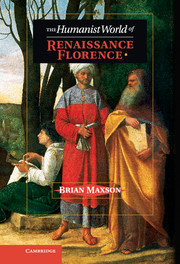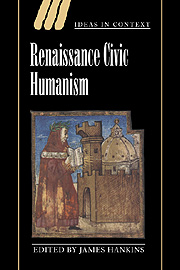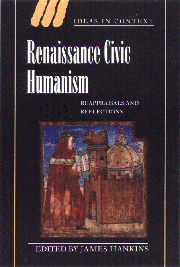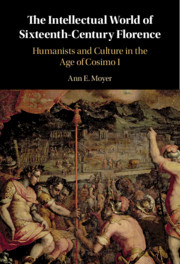The Humanist World of Renaissance Florence
This book offers a major contribution for understanding the spread and appeal of the humanist movement in Renaissance Florence. Investigating the connections between the individuals who were part of the humanist movement, Brian Jeffrey Maxson reconstructs the networks that bound them together. Overturning the problematic categorization of humanists as either professional or amateurs, a distinction based on economics and the production of original works in Latin, he offers a new way of understanding how the humanist movement could incorporate so many who were illiterate in Latin, but who nonetheless were responsible for an important intellectual and cultural paradigm shift. The book demonstrates the massive appeal of the humanist movement across socio-economic and political groups and argues that the movement became so successful and so widespread because by the 1420s¬–30s the demands of common rituals began requiring humanist speeches. Over time, deep humanist learning became more valuable in the marketplace of social capital, which raised the status of the most learned humanists and helped disseminate humanist ideas beyond Florence.
- Has a wide-ranging approach and arguments with implications for all scholars and students of the period
- Takes a unique interdisciplinary approach that combines the study of the humanist movement with the broader social world
- The accessible text is designed to introduce advanced undergraduate and graduate students to the most important cultural movement (humanism) of the Renaissance in its most important center (Florence)
Reviews & endorsements
"A compelling and challenging synthesis of intellectual, social and quantitative history."
History Today
"In recent years, a number of scholars have belittled or denied the importance of Italian Renaissance humanism. This excellent book sets the record straight. Using an array of archival, manuscript, printed, and secondary sources, Maxson demonstrates that the humanist movement in Florence had an early impact (1420s), included many more individuals than previously thought, and played a major role in Florentine government and society in the fifteenth century. Summing up: highly recommended."
P. Grendler, Choice
"The Humanist World of Renaissance Florence provides a fascinating and convincing new theory about the engine that drove the growth of humanism. This is an outstanding book, one that anyone interested in this critical moment in Italian - and Western - history will want to consult … Beyond the specific story he tells, Maxson's greatest contribution is perhaps his demonstration, yet again, of a new mobility in social status, independent of inherited social position, whose impact we continue to measure today. His book stands up well on a shelf already occupied by such names as Baron, Baxandall, Burckhardt, Martines, and Witt. Its own gift offering is that of a welcome new voice."
Michael Sherberg, Speculum
Product details
December 2013Hardback
9781107043916
312 pages
231 × 155 × 28 mm
0.57kg
Available
Table of Contents
- Introduction. A social conception of the humanist movement
- 1. Learned connections and the humanist movement
- 2. Literary and social humanists
- 3. The social origins of the Florentine humanists
- 4. The humanist demands of ritual
- 5. Civic failure of the literary humanists or literary failure of the civic humanists?
- 6. The rise of the social humanists, 1400–55
- 7. Humanism as a means to social status, 1456–85.








